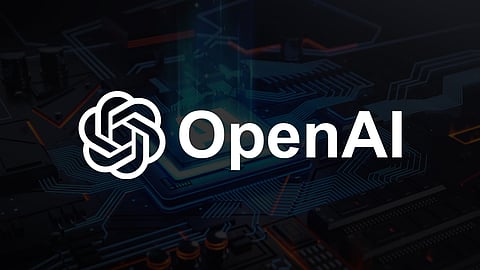
- News
- Columns
- Interviews
- Law Firms
- Apprentice Lawyer
- Legal Jobs
- हिंदी
- ಕನ್ನಡ

The Delhi High Court on Tuesday issued summons to OpenAI in a suit filed by the Asian News International (ANI) over alleged unauthorized use of its content by the American artificial intelligence company to train and operate ChatGPT [ANI Media Pvt Ltd V/s Open AI Inc & Anr]
Justice Amit Bansal also recorded OpenAI's statement that ANI's official website has been already been blocked by it to ensure that its content - as available on the portal - is not used by ChatGPT.
Considering the importance of the issue particularly related to the copyright and use of publicly available content by AI models like ChatGPT, the Court said it would appoint an amicus curiae in the case.
The Court also issued notice to OpenAI on ANI's application seeking interim directions against ChatGPT.
ChatGPT is an AI chatbot developed by OpenAI that answers queries of its users.
"ChatGPT works as a digital assistant, capable of learning from interactions and adapting its behavior to meet user preferences, making it a versatile tool for both personal and professional use," the chatbot said in response to a query by Bar and Bench.
Advocate Sidhant Kumar, who appeared for the ANI, explained to Court how ChatGPT functions.
He submitted that the news agency's copyrighted material was being used to train the chatbot.
"The software is provided with all the publicly available data which includes copyrighted content. And in this case, my content is a part of the data that is used to train," Kumar said.
In this regard, Kumar argued that merely because the news content is publicly available, OpenAI does not get a right to exploit it or create copies of it to store.
Further, ANI said that ChatGPT was attributing false information to it.
"This service also gives a false attribution to me. For example, it says Rahul Gandhi, Leader of Opposition, gave interview to ANI when no interview was given. That is the propensity to not just hurt my private rights but also spread fake news," Kumar argued.
Kumar also said that OpenAI had offered to block its website so that its data is not collected by the ChatGPT.
However, he added that there was a practical difficulty in a case of a news wire since its content is reproduced by other websites or news organizations.
The Court said this particular issue will be examined later.
"The rest of the concerns the Court will rule on," Justice Bansal clarified.
ANI's suit is the first instance where an Indian media house has sued OpenAI for alleged copyright violation.
In the recent past, New York Times had sued OpenAI for the unauthorized use of its content to train its platforms. Microsoft’s Copilot and Google’s Bard AI have also faced lawsuits over the same issue.
During the hearing, Justice Bansal also asked whether any suits against the AI platform had been filed outside India.
Senior Advocate Amit Sibal, representing OpenAI, submitted that ANI's suit was the first case against ChatGPT in India.
He further submitted that there have been 13 lawsuits against OpenAI in USA, two in Canada and one in Germany since 2022 but no injunction has been granted against the chatbot.
Sibal also clarified that no court outside India has found copyright infringement in gathering of information by the model.
"There is no monopoly on facts. I am fully bonafide because from inception I have provided that if anyone does not want their website accessed by me, can get themselves put on blocklist," Sibal added.
OpenAI chatbot has no server located in India and does not reproduce any material of ANI in India, Sibal further said, while questioning the maintainability of ANI's suit.
"There is no instance in the present suit where he has shown any reproduction of his material...therefore, in India, the plaintiff [ANI] has no cause of action," Sibal argued.
Nevertheless, Sibal went on to argue that copyright laws do not protect ideas or facts. It only protects expression, he added.
"The plaintiff has failed to give a single instance in the suit of any reproduction of his expression by the defendant [OpenAI]. My friend rightly said 'data is collected'. A Freudian slip perhaps!," Sibal argued.
He then explained how ChatGPT functions.
"The data is collected. News is a minuscule proportion of it. I want to again clarify that when a query is made the software learns from the information accessed but it never accesses a database to answer a query. The matter is complex. It has been never addressed by any court in India".
After the Bench said it was more concerned about false information on ChatGPT, Sibal responded that through manipulation by way of a query, one can attempt to have a manipulated answer.
"In every instance where they have raised that there is a misleading response, we have removed it," he added.
Sibal said ChatGPT is a "force for good" but it may not be perfect. The instances like these are rare, he added.
In the suit, ANI has said that that its original content is being exploited by OpenAI for commercial gain.
Particularly, the suit alleges that ANI's original news content is being used to train the large-language model of ChatGPT for answering the user queries.
The AI chatbot reproduces ANI’s original content in its response to the users, according to the newswire.
Further, ANI has also claimed that ChatGPT is giving certain false information and citing ANI as the source for it.
This poses a threat to ANI’s reputation and may lead to the spread of fake news that may cause public disorder, the news agency has argued.